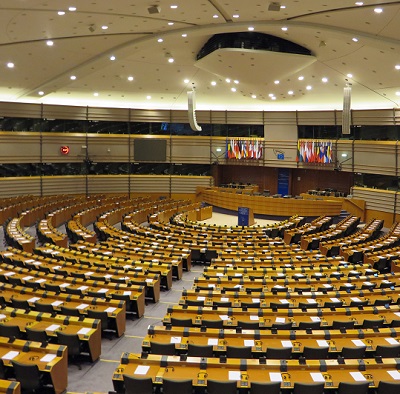 Leaving the EU is a complex undertaking. Despite some calls for the UK to ‘just leave’, it is generally recognised that an orderly exit is desirable. The UK’s relationship with the EU has many complex strands with legal, regulatory, economic and political dimensions that are not likely to be unpicked easily. Doing so will be a humongous task, with a sheer complexity and scale that is difficult to imagine for most people. Often the analogy of a divorce is given, but while Brexit is a separation, the divorce metaphor belies the complexity of the undertaking. If it is a divorce then it is a divorce not from a simple two person relationship involving children and shared assets, but one which involves multiple partners, with the UK wanting to retain some level of access to the “children” such as agreements on trade, crime, security, nuclear energy, farming, science, and many more.
Leaving the EU is a complex undertaking. Despite some calls for the UK to ‘just leave’, it is generally recognised that an orderly exit is desirable. The UK’s relationship with the EU has many complex strands with legal, regulatory, economic and political dimensions that are not likely to be unpicked easily. Doing so will be a humongous task, with a sheer complexity and scale that is difficult to imagine for most people. Often the analogy of a divorce is given, but while Brexit is a separation, the divorce metaphor belies the complexity of the undertaking. If it is a divorce then it is a divorce not from a simple two person relationship involving children and shared assets, but one which involves multiple partners, with the UK wanting to retain some level of access to the “children” such as agreements on trade, crime, security, nuclear energy, farming, science, and many more.
The sheer complexity and speed of Brexit is likely to have further psychological effects that make it different from normal political issues. Psychologists have shown that when faced with overwhelming information load, such as high complexity and abstract information, along with situational constraints on being able to evaluate such information (insufficient time), the human cognitive system uses shortcuts to simplify the task. When there is information conflict in such highly complex situations, this creates a state psychologists refer to as “cognitive dissonance”. Human beings generally seek to reduce such dissonance by trying to restore the consistency of the information they are exposed to, such as by integrating new information into their beliefs. To make an analogy; if a human being is hungry they might find something to eat to reduce their feeling of hunger. However the state of dissonance cannot always be reduced by information in this way, especially if faced by a lack of information or the sheer complexity and overwhelming nature of too much information.
In order to deal with complexity, dissonance or lack of information, human beings employ mental shortcuts that act to simplify, filter, and reduce the information load. Some of these shortcuts include: selecting confirmatory information, anchoring judgements on a few pieces of information (particularly the first piece of information), judging information based on how easy it is to imagine, and perceiving oneself to be less biased than others. Such cognitive strategies operate in the form of bias, ultimately reducing or simplifying the amount of information that is available to a decision-maker and creating a perception of certainty around the decision.
One particular bias that could produce unexpected problems during the negotiation is the so-called backfire effect. This occurs when a person is confronted with evidence that disconfirms, or does not align with, their existing beliefs. Rather than adjusting their belief to take account of the new but disconfirmatory information, people instead strengthen their existing beliefs. This has been found to apply to climate change denial and adherents of conspiracy theories, and other political beliefs. There are indications that the backfire effect can affect politicians in the Brexit process. For example, a report warning that leaving the EU would have serious consequences for the economy triggered a number of pro-Brexit MPs to storm out of a meeting amidst denials of the analysis on the basis it was too ‘gloomy’.
The high pace of the negotiation process - with less than 2 years of negotiation time to thrash out the issues - and with the polarisation of issues taking place via the group pressures operating within the UK government, are the ideal conditions for making decision-making biases more likely. The implications for the process of negotiation are that biases may result in options not being fully considered before or during negotiation. Negotiators may fail to listen to experts and negotiation partners, with the polarisation of views between negotiating parties ultimately leading to a failure to reach agreements. The consequence here could be a very hard Brexit.




Rate and Review
Rate this article
Review this article
Log into OpenLearn to leave reviews and join in the conversation.
Article reviews